Turks and Caicos Common Scams
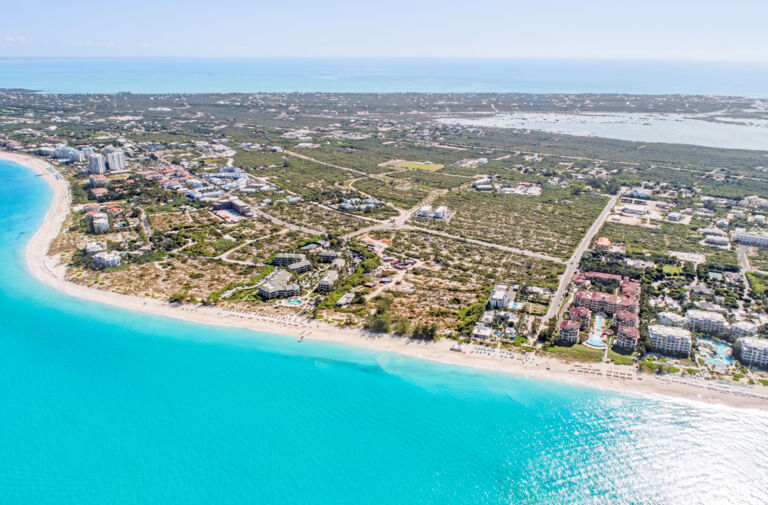
The Turks and Caicos Islands is generally a safe and relaxing place to visit. However, like any country, some bad actors take advantage of visitors by overcharging for services, using bait and switch tactics, selling fake services or experiences to guests, and being disingenuous in what they offer.
Scams can be more subtle than those common in other destinations, and it’s important to be aware of frequent schemes that deceive visitors.
Here are some of the travel scams that tourists might encounter when visiting Turks and Caicos. For general safety information, see Safety & Crime.
Fake Airbnb Listings
The primary short-term rental scam in the Turks and Caicos Islands is advertising a fake listing on sites like Airbnb for an established Turks and Caicos villa or vacation rental. Fake listings have historically copied legitimate properties in the mid- to upper-tier of the rental market and have advertised them at questionably discounted rates. Tourists have arrived in the Turks and Caicos only to find out they have been scammed when trying to check in for a reservation that the owner or property management company has no record of.
These scams are most likely run by foreign scammers who obtain funds from guests by asking them to send additional money via a different and unprotected platform, and who claim these extra funds are for add-on services (airport transfers, grocery stocking, and so on) or activities. While the online short-term rental booking companies like Airbnb and VRBO typically refund your payment in the event of a fake listing, funds sent outside of these channels are rarely recovered.
Never send payment to Airbnb or VRBO hosts outside of normal channels. Beware of listings that appear too good to be true (cheap rates for a luxury beachfront villa, for example) from new hosts with no reviews.
Exorbitant Taxi Fares
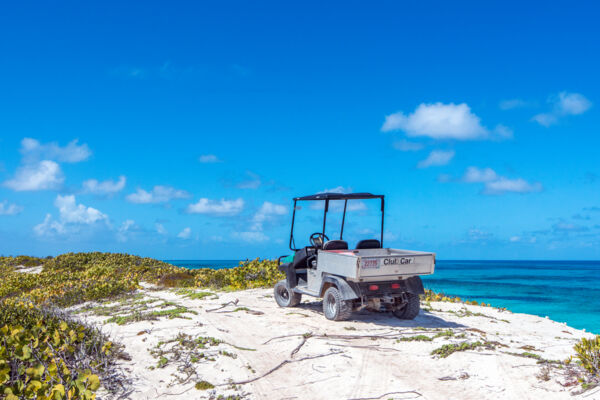
Not all taxis are scam artists, but taxis are a common complaint with tourists. While the law requires that every taxi in the country use a meter, there are no metered taxis, and the Government does no enforcement in this regard. The taxi fare system is based on fixed prices for certain routes (such as from the Providenciales International Airport (PLS) to Grace Bay). This makes it easy for some taxi drivers to propose outlandish taxi fares to uninformed tourists, and is especially common for routes that are not outlined in the government scheme.
Taxi pricing is further complicated by the way fares for groups are calculated for shared taxis. The shared taxis you will find at the Providenciales International Airport are large shuttle vans that charge per person, as opposed to charging a flat rate for the ride to the destination. These taxis charge a set rate for the first two people in your party, and any additional people in your group each pay half the rate.
It’s important that you confirm the price with your taxi driver for your entire party before taking a taxi. Some taxi drivers may provide a quote without clarifying that the fare is per person. Children under the age of two should not be charged.
There is no such thing as an 'evening' or 'night' rate. If a taxi driver mentions this, it is a scam and you should find another taxi.
It's worth noting that most taxis only accept cash as payment and may not have change for larger bills. Confirm that you have exact change before beginning your trip to avoid confusion or having to detour towards an ATM on your ride.
Resort Concierges Booking Different Tours
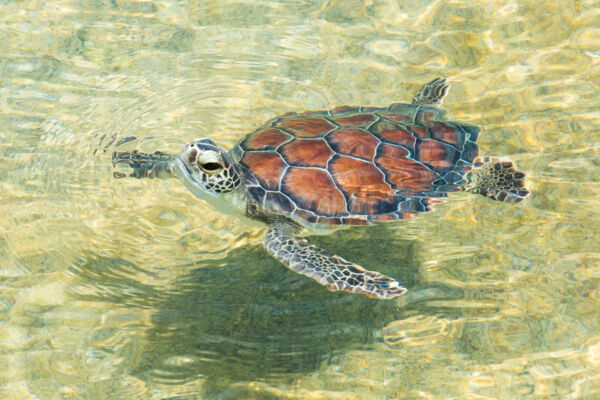
Resort concierges typically receive a commission for booking tourists on tour and boat companies that they have a relationship with. As a result, some resort concierges pressure guests into booking with the companies they earn a commission with, or that the concierges themselves are being told to push by management that has a stake in a company, regardless of what the guest wants.
In some cases, a concierge may agree to book you on a tour with the company you have chosen, and reserve a tour with an entirely different provider in the hopes that you won’t notice. It’s recommended that you only use concierges for making dinner reservations. For all water sports, land activities, and other experiences, book directly.
Intentional Seafood Mislabeling
Some restaurants intentionally mislabel seafood to increase profits. A common scam is serving cheap imported fish under the guise of a more expensive local fish.
Grouper
Grouper is a popular seafood served in the Turks and Caicos Islands, and is one of the more expensive fish to order. Grouper served in restaurants is often actually tilapia or Asian catfish.
A 2020 study that performed DNA testing on restaurant samples found that 96% of fish sold as local grouper in Turks and Caicos was mislabeled. Of the fish tested, 22% of the fish was of local origin, but only 4% were local grouper species.
Unfortunately, one of the only ways to determine whether you’re eating grouper is to have previously tried authentic Turks and Caicos grouper. Tilapia is typically a very consistent fillet with white flaky meat and a mild taste. Local grouper fillets aren’t usually as consistent in shape and taste fresher.
Low-Quality Service Providers
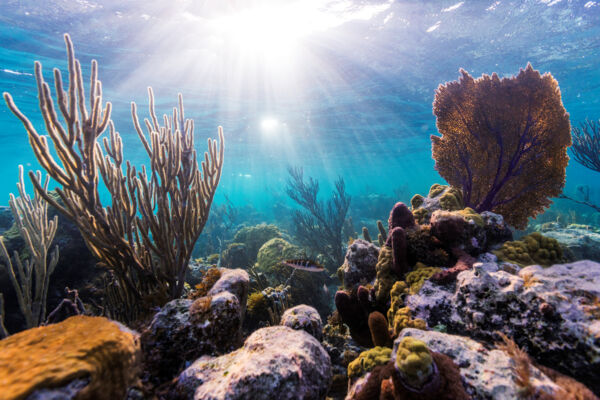
While there are many businesses in the Turks and Caicos that are run by honest and professional people, many are not. Many of the unprofessional businesses that affect tourists are fly-by-night water sports tour operators.
These operators, often marketing boat wake rides or jet ski rentals, rarely have insurance or the necessary licenses to operate a business. It’s common to see them driving through designated swim zones and showing little regard for the marine environment. They may also refuse to be upfront about the price of the tour, or demand more than the agreed-upon amount after the tour. Some jet ski companies will charge you extra for a ‘guide’ on a guided tour after the fact, without specifying in advance.
Do not book with an unlicensed company. They often do not have insurance, and you are more likely to get into an accident. If you do get into an accident, collecting insurance will be a much bigger hassle than it would be otherwise, as travel insurance may not cover medical care in Turks and Caicos for injury during a tour with an unlicensed business. Medical evacuation, which is often required in the case of severe injury, is very expensive.
It’s typically easy to avoid unprofessional businesses by doing your research ahead of time. Most reputable Turks and Caicos tourism businesses have a functional website and a good online presence.
Dishonest Car Rental Companies and Charges
There are many car rental companies on Providenciales, and not all of these companies are equal. Some car rental companies oversell vehicles, claim to offer airport pickup (but don’t), are significantly delayed in picking up guests from the airport, and charge surprise fees when you return the vehicle.
A common add-on to car rental bookings is a sand fee or cleaning fee. Some companies choose to charge these fees for negligible amounts of sand left in the vehicle by the renter. Some tourists also report being charged for pre-existing damage to a vehicle.
Avoid booking with a car rental company that doesn’t have a proper website. Many of these offline businesses misrepresent the cars they have for rent and are not honest about where they’re located. For example, several companies claim to be based at the airport, but are actually located somewhere in the Downtown area—this can add an hour or more to your pickup process, as you will either need to wait for a shuttle that the company further delays to wait for additional customers, or pay for a taxi to reach the location (some companies do not offer a shuttle at all).
Be sure to take a video of your rental car’s exterior and interior before leaving the company grounds to document any scratches, nicks, missing parts, or signs of damage. While the overall condition of rental cars in Providenciales has improved in the last 15 years, vehicles from the cheaper rental companies can be worn and in poor condition.
Restaurant Taxes and Fees

Dining in the Turks and Caicos is expensive, and there are two mandatory Government taxes that many restaurants must collect—Government Tourism Tax (12%) and Service Charge (10%, which is mandatory for resort restaurants and staffed villas and is optional for other restaurants). A few resorts also choose to charge a Facility Fee (5%).
These three taxes are the only legal mandatory taxes in the Turks and Caicos. Any fees and taxes that are to be applied to restaurant meals must be on the menu. Some restaurants may charge a City Tax or other tax, add a surprise gratuity, or charge another fee. If these fees are added to your bill and are not present on the menu, it’s recommended that you refuse to pay them.
Many restaurants charge extra gratuity in the case of large parties (typically 8 or more people). As with taxes, the gratuity policy must be written on the menu.
Some establishments add additional unordered food items or drinks to bills. Review your bill closely to make sure that it only contains meals and drinks that your group consumed.
Credit and Debit Card Scams
Card Skimming
Card skimming, whereby the details of your credit or debit cards are copied by service staff, happens often. This is partly due to the fact that it’s common in the Turks and Caicos for servers to take your credit card away from the table to charge it.
Ask for a card machine to be brought to your table (even when you give a card, a server will typically return with a card machine anyway). Do not let the card out of your sight.
Wrong and Non-Transparent Charges
Another issue is many vendors enter the amount to be charged in the terminal, and then tap through the process until it's on the 'present card' stage. Normally, a vendor should enter the price and pass to the client, in order that the client can review and confirm the price before presenting their card.
If you are given a card terminal and it's asking you to tap your card, and the price is not shown on the terminal, stop. Ask the vendor to restart the process and show you the price they will be charging to your card.
Blocking Public Beach Accesses
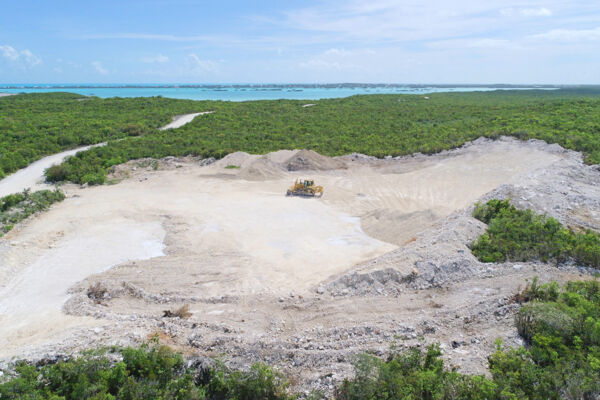
Some accommodations and other businesses try to block access to certain beaches or hide beach accesses, particularly on Providenciales. All beaches in the Turks and Caicos are public up to the high tide point. If a person tries to tell you that you cannot use the beach and that it is private, they are lying to you.
While all beaches are public, some accesses do cross through private property (through which the law doesn’t guarantee access). In recent years, the Government has allowed private developments to build on private beach accesses on the condition that they include a public beach access and parking, and often restroom access for beach guests. After construction, these accesses are often hidden. Security will lie and say there is no public beach access or parking, when in fact there is, per the property’s development agreement.
See Beaches of Providenciales page for a list of beaches and beach access information.
Jitneys Masquerading as Taxis
Jitneys are illegal taxis that charge very low fares for transit from place to place. These vehicles are typically small unmarked cars, such as a Honda Fit or Nissan March, and weave dangerously through traffic to collect any passenger they can find.
Jitneys will stop in the middle of a lane on Leeward Highway or even mount a sidewalk to pick up a passenger, and rapidly merge in front of drivers with little regard for the safety of others. The cars are often mechanically unsafe, uninsured, and are sometimes driven by drivers without a license.
Jitneys will often try to extort passengers based on their race and whether they believe them to be foreigners. Jitney drivers and criminals pretending to be jitney drivers have committed serious crimes against passengers. Do not take a jitney under any circumstances. It’s best to rent a car.
